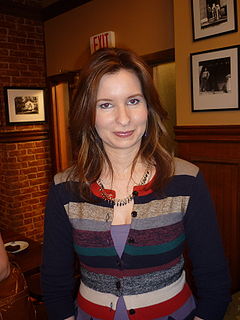A Quote by Michelle Wolf
Related Quotes
I keep on repeating something told to me by an American psychologist: "When you are making a joke about someone and you are the only one to laugh, it is not a joke. It is a joke only for yourself." If people are making a joke they have the right to laugh at me but I will ignore them. Ignoring doesn't mean that you don't understand. You understand it so much that you don't want to react.
Often, when you're in some of these writing rooms for... and the most restrictive is network television, right? They say, 'Wow, that's a great joke, but we can't do that. Okay, let's try the second joke. Oh, you can't do that one. But the third joke you can do,' and hopefully it will be great, but it will remind people of what the joke really was.































